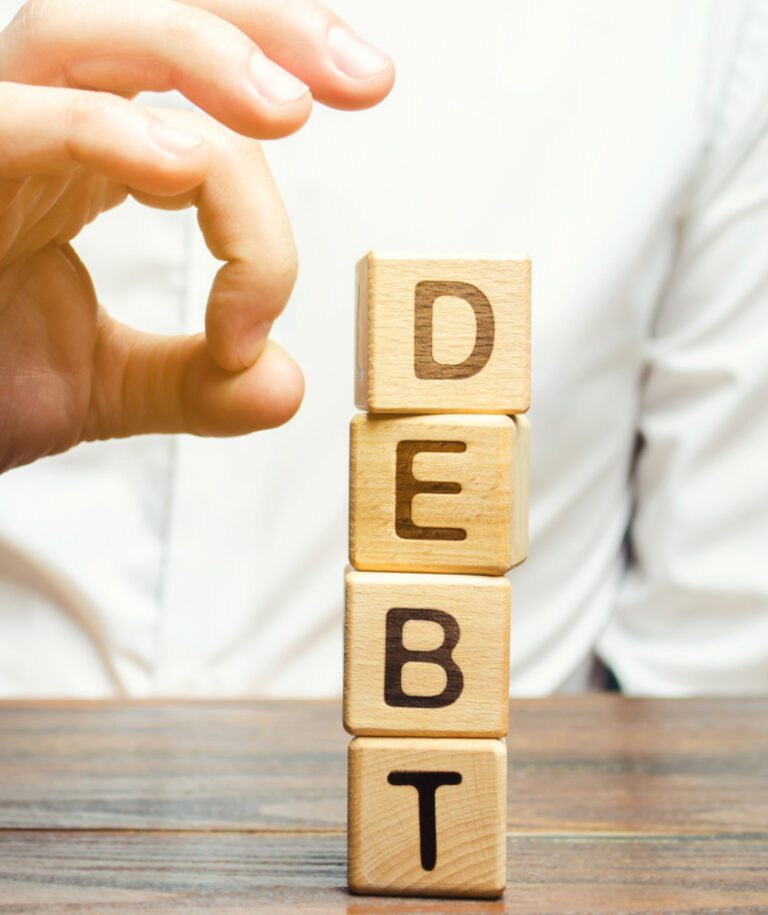Many things are made a lot more challenging when you’re on a debt management plan – securing a credit card is just one of the difficulties running through your head when you’re faced with issues repaying your creditors, but also coping with unexpected bills or rising costs. For most people, debt management plans allow them a flexible repayment process or partial payment terms that enable them to take control of their life and their finances.
There are alternative debt solutions, but the most common alternative debt solution is an Individual Voluntary Agreement (IVA). In short, an IVA is a formal and binding agreement made between you and your creditors that enables you to make a monthly payment that covers all of your unsecured debts. This arrangement has to be set up by an insolvency practitioner and is typically a preferable alternative to bankruptcy.
This guide will talk you through how a debt management plan will impact your credit score, and whether you can apply for a credit card whilst with a debt management service.
We're Here to Help YOU
Speak with Our Team of Debt Consultants.
Do you have questions or would you like more advice?
You can book an appointment with our team of debt consultants in minutes.
Just click the button to book your appointment today.
May not be suitable in all circumstances.Fees apply. Your credit rating may be affected.
How Does a Debt Management Plan Impact My Credit Score?
A debt management plan does not have a specific place on your credit report in the same way as an IVA, which has a specific section and remains on there for 6 years from the date the IVA is approved. Instead, your credit rating will be updated to reflect that you are paying less than the contractual amount, and defaulted on the debt. The individual creditors may also place an individual DMP or ‘arrangement to pay’ marker against their individual entry on the credit report. The default, and the reduced payments, will remain on your credit report for six years from the date of default, if one has been issued, or six years from the final payment, after which it will be removed, from your credit report, meaning you will be able to start building up a more positive payment history for yourself. Debt management plans will typically last a maximum of 10 years, although some debt settlement companies offer a 3 to 5-year repayment plan, whilst an IVA is based on a 5 or 6-year plans. If you’re interested in seeing your own credit score and the impact that your debts have on it, credit reference agencies such as Experian allow you to do so for free without any effect on your credit score whatsoever.
Whether your debt management plan will show up on your credit file depends on the type of debt payment management you have. A debt management agency will more than likely ask for a note to be put onto your file to let any potential lenders know that you have a poor payment history. However, a debt management plan with evidence of regular payments undoubtedly looks better on your credit history and appeals more to creditors than late payments or unpaid debts. So, don’t despair if you are currently on a debt management plan and worried about its impact on your credit score. If you are paying the full contractual amounts to your creditors, the plan will not appear on your credit report, but if you are paying less than the minimum payment it will be recorded on your credit file.
If you miss any payments, this is also recorded on your credit file, depending on the accuracy of creditor balances. This will make it harder for you to get credit not only while you’re making reduced payments but also for some time afterwards. You may experience calls from creditors or even increases in current interest rates if you find yourself falling behind during your repayment period and not delivering on-time payments.
Your credit utilisation ratio makes up around 30% of your total credit score, and this is measured by how much credit you’re using compared with your credit limit. Commonly, agreements made by creditors mean that you can always ask for a rate reduction or a variable rate if your situation changes and meeting the threshold of your payments is no longer possible.
The accounting of income that takes place when a debt management plan begins helps you to be able to see how much you’re spending in relation to the amount you’re bringing in. This is effective when viewing your credit score because it helps you to understand why a debt management plan is affecting your score. It also shows conceivable ways to make changes and eventually take back control of not just your credit score but other personal finances and funds in other areas of your life.
Can You Apply for a Credit Card While on a Debt Management Plan?
It is possible to obtain a credit card while on a debt management plan, although it is a high-risk decision and one that isn’t advisable in the majority of cases. You will have previously entered a debt management plan as you were struggling to pay your creditors, and the credit card repayments may affect your ability to pay your plan. Getting a credit card at this time is not always advisable because the longer you successfully pay off your debt, the more chance you have of your credit score improving – as your credit score improves, the chances of you being able to apply for a loan for a mortgage or a new car, for example, improve also.
Credit card companies are likely to reject your application if they look at your credit file and see that you have outstanding unmanageable debt or are currently filing for bankruptcy. They may also look at your monthly income and determine whether or not you’re in a position to be able to utilise a credit card responsibly and within the terms of your debt management plan. If you already have credit card debt from legitimate creditors and are thinking of applying for another credit card, they may offer alternate repayment plans at a more affordable rate rather than simply rejecting your application based on their analysis of your household income.
Not having access to a credit card may be the best thing if you’re struggling with your contractual payments, and are instead paying your creditors through a debt management plan. Having to work with debt management companies and not being able to access credit card accounts help to teach valuable money management skills and prevent you from possibly having to look at formal insolvency options to deal with your debts. Working with credit counsellors is also an option.
Sometimes when a person needs to use a credit card whilst on a debt management plan, there is a wider issue of affordability and suitability. Although the credit card may solve a short term problem, it may cause a long term issue by impacting on your ability to make your payments on the debt management plan. If this reduces your payment to creditors on the debt management plan, which wil mean it will take longer to pay back. It is therefore important to make sure the payments are affordable to begin with. If the affordable payment means paying your debts back over a period of longer than 6 years, then an IVA may be a more appropriate solution, as you will be able to clear your debts in shorter time period.
At NDH Financial, our team are experienced in helping clients address a wide range of financial issues – we can offer you guidance and support in identifying appropriate debt solutions if you’re having difficulty managing your debts.
We're Here to Help YOU
Speak with Our Team of Debt Consultants.
Do you have questions or would you like more advice?
You can book an appointment with our team of debt consultants in minutes.
Just click the button to book your appointment today.
Want to Know More?
If you’re after a reputable debt solution company, apply to NDH Financial today to receive a free consultation call from an IVA consultant. We will help you to identify how much you owe, how much you can afford to pay towards your debt, and see if you qualify for the scheme to write off up to 75% of your debt! With no upfront costs or obligations, get in contact today and let NDH Financial take care of the rest.


